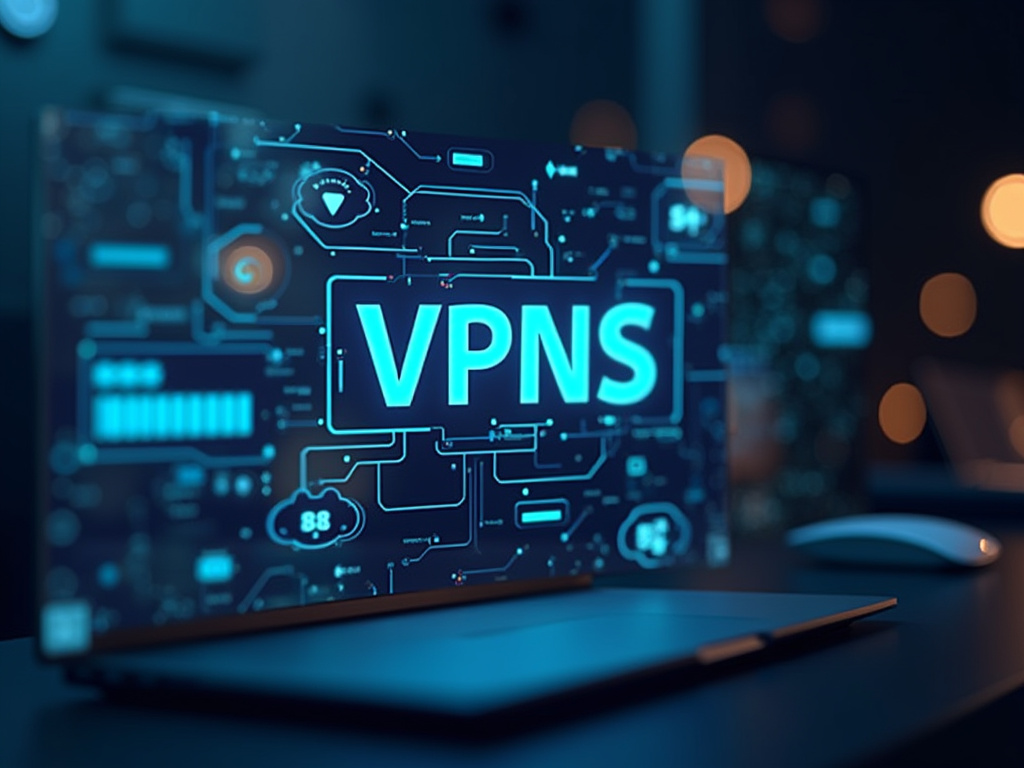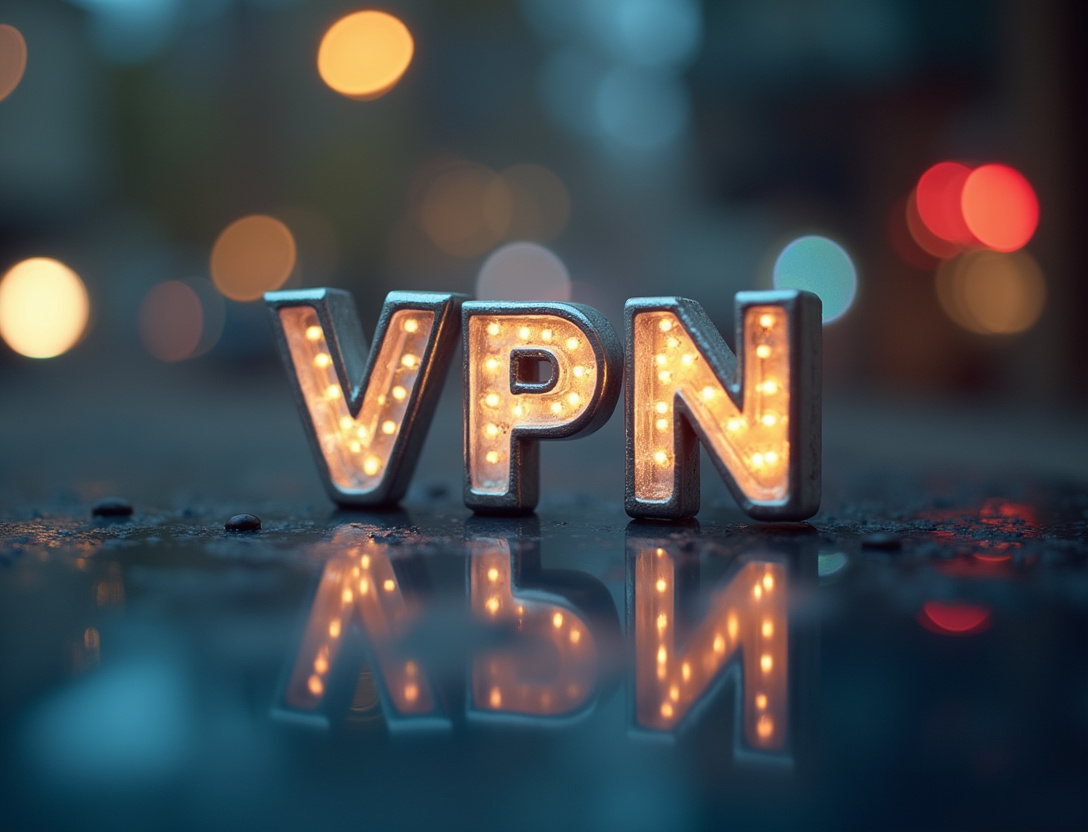VPNs for Cloud-Based SaaS Providers: Securing Client Interactions

Table of Contents
- VPNs for Cloud-Based SaaS Providers: Securing Client Interactions
- VPNs as Secure Conduits: Encrypting Data and Centralizing Control for Enhanced Protection
- Protecting Data at Rest: A Layered Security Architecture Complemented by VPNs
- VPNs for Services: Enhancing Security and Privacy within Online Platforms
- The Future of VPNs in Subscription Services: AI-Powered Security and Seamless Integration
VPNs for Cloud-Based SaaS Providers: Securing Client Interactions
In the dynamic realm of Software as a Service (SaaS), where applications and data reside in the cloud, securing client interactions and fortifying the protection of sensitive service data are not merely best practices, but fundamental imperatives. SaaS providers, by the very architecture of their service delivery, operate within a shared, multi-tenant environment, making them prime targets for cyberattacks. This inherent vulnerability necessitates a comprehensive and layered security strategy, one that extends beyond conventional perimeter defenses and delves into the intricacies of data transmission and user authentication.
A Virtual Private Network (VPN) emerges as a crucial and versatile instrument in this security arsenal, offering a multifaceted approach to enhance client interaction security, strengthen service data protection, and ensure an unwavering commitment to privacy for both the SaaS provider and its valued clients. The importance of effective VPN implementation cannot be overstated in an era defined by escalating cyber threats and increasingly stringent data privacy regulations. At its core, a VPN functions as a secure and encrypted conduit, establishing a private connection between a user's device – be it a laptop, tablet, or smartphone – and the vast expanse of the internet.
This encrypted tunnel effectively cloaks the user's IP address, rendering their online activities substantially more resistant to tracking, surveillance, and malicious interception. For SaaS providers, this translates into a significantly more secure access pathway for clients engaging with their services. This secure tunnel plays a vital role in mitigating the risks associated with man-in-the-middle attacks, those insidious attempts by cybercriminals to intercept communication between two parties.
Similarly, it provides protection against data breaches, where sensitive data is exfiltrated by unauthorized individuals, and other forms of malicious activity that can compromise the integrity and confidentiality of client information. Furthermore, VPNs offer the capability to configure and route all client traffic through a designated server, a strategic advantage that establishes a centralized point of control and comprehensive monitoring capabilities. This centralized approach empowers SaaS providers to implement and enforce stricter security policies, incorporating measures such as content filtering to block access to malicious websites and malware scanning to detect and neutralize threats before they can impact client data.
This ensures that only authorized and scrutinized data traverses the network, significantly reducing the attack surface. However, the benefits of VPNs extend beyond simply encrypting data during transmission. They play an equally crucial role in safeguarding service data at rest, the data that resides on servers and storage systems within the SaaS provider's infrastructure.
By integrating VPNs with other security measures, such as robust data encryption protocols and stringent access control mechanisms, SaaS providers can create a multi-layered security architecture that dramatically reduces the risk of unauthorized access, data leaks, and insider threats. This layered approach is particularly vital in light of increasing regulatory scrutiny surrounding data privacy. Regulations such as the General Data Protection Regulation (GDPR) and the California Consumer Privacy Act (CCPA) impose significant obligations on organizations to protect personal data, with severe penalties for non-compliance.
A proactive VPN strategy can contribute significantly to meeting these compliance requirements and mitigating the risk of substantial financial penalties. Beyond the realm of security and compliance, VPNs also contribute to improved operational reliability, a critical aspect of delivering consistent and dependable SaaS services. By providing a secure and reliable connection for remote workers, distributed teams, and geographically dispersed clients, VPNs ensure that critical business processes are not disrupted by network outages, connectivity issues, or security incidents.
This seamless connectivity is particularly vital for SaaS providers who depend on uninterrupted access to their infrastructure to deliver their services effectively. Moreover, the use of VPNs enhances the consistency of service delivery by neutralizing geographic restrictions and reducing the impact of network congestion. The deployment of VPNs within a SaaS environment, while essential, is not without its inherent challenges.
The selection process requires rigorous evaluation of factors such as scalability to accommodate growing user bases, performance to ensure minimal impact on application responsiveness, and cost-effectiveness to align with budgetary constraints. SaaS providers must also ensure that their VPN implementation is fully compliant with all relevant data privacy regulations, demonstrating a commitment to protecting client data and maintaining regulatory compliance. In conclusion, VPNs represent a mission-critical technology for SaaS providers, offering a multifaceted solution to enhance client interaction security, protect sensitive service data, ensure unwavering client privacy, and bolster operational reliability.
VPNs as Secure Conduits: Encrypting Data and Centralizing Control for Enhanced Protection
The trust a SaaS business cultivates with its clientele is the lifeblood of its long-term success. This trust isn't solely built upon the functionality or innovation of the software itself; it's founded upon the unwavering assurance that client data and interactions are meticulously protected, treated with the utmost confidentiality, and shielded from potential threats. In the inherently vulnerable landscape of the SaaS model, where clients entrust their sensitive information and critical business processes to a third-party provider, rigorously prioritizing client interaction security is not merely a desirable attribute, it's a fundamental, non-negotiable imperative.
A VPN effectively serves as an impenetrable protective shield, substantially bolstering this security posture and reinforcing the bonds of trust between the SaaS provider and its clients. Consider, for example, a scenario where a client, whether a large enterprise or a small business owner, accesses a SaaS application from a public Wi-Fi network. These networks, commonly found in seemingly innocuous locations such as cafes, airports, hotels, and co-working spaces, are frequently characterized by weak or non-existent security protocols, making them inherently susceptible to a wide array of cyber threats, including eavesdropping and malicious data interception.
Without the protection of a VPN, the client's sensitive data, which might encompass confidential login credentials, privileged access tokens, proprietary business information, or even personally identifiable information, could be easily exposed to malicious actors lurking on the same network. These attackers could potentially intercept the data stream, gain unauthorized access to the client's account, and wreak havoc on their business operations. A VPN dramatically mitigates this risk by encrypting all data transmitted between the client's device and the SaaS application server, rendering it unintelligible, unreadable, and useless to anyone attempting to intercept it.
This encryption acts as a crucial and impregnable layer of defense, significantly reducing the likelihood of data breaches, identity theft, and other potentially catastrophic security incidents. Crucially, the encryption protocols employed by modern VPNs are exceptionally strong, often utilizing advanced encryption standards (AES) with key lengths of 256 bits or more. This level of encryption is virtually unbreakable with current computing technology, providing a high degree of confidence that the client's data remains secure, even in the face of sophisticated attacks.
Beyond simply encrypting the data stream, VPNs also play a critical role in enhancing client interaction security by masking the client's true IP address. This masking technique effectively prevents websites, online services, and even malicious actors from accurately tracking the client's geographic location, browsing history, and online activities. This enhanced anonymity is particularly valuable for clients who operate in sensitive industries, such as finance, healthcare, or law, where the need for privacy is paramount.
It's also beneficial for clients who are simply concerned about their fundamental right to online privacy and who wish to minimize the amount of personal data that is collected and stored about them. In addition to protecting individual client interactions, VPNs can be strategically deployed to secure entire networks of client devices, providing a comprehensive and consistent security solution across an entire organization. By configuring a VPN gateway, the SaaS provider can ensure that all traffic originating from a client's network is automatically routed through a secure and encrypted VPN tunnel, regardless of the individual device or application being used.
This approach is particularly advantageous for clients who have multiple users accessing the SaaS application from various locations, as it eliminates the need for each user to manually configure a VPN connection on their own device. The utilization of VPNs demonstrably contributes to improved compliance with stringent data privacy regulations, such as GDPR and CCPA. These regulations mandate that organizations implement appropriate technical and organizational measures to protect personal data from unauthorized access, disclosure, and modification.
By proactively implementing robust VPNs, SaaS providers can clearly demonstrate their unwavering commitment to data security, which, in turn, helps them meet their compliance obligations, mitigate the risk of regulatory scrutiny, and avoid potentially crippling fines. Ultimately, a robust VPN implementation is a testament to a SaaS provider's dedication to safeguarding client data, fostering trust, and building lasting partnerships. By prioritizing client interaction security, SaaS providers can not only protect their clients from harm but also differentiate themselves in a competitive market and establish a reputation for excellence in data protection.
Protecting Data at Rest: A Layered Security Architecture Complemented by VPNs
The very foundation upon which a SaaS (Software as a Service) business is built is the vast trove of data it processes, manages, and securely stores on behalf of its diverse clientele. This data, frequently encompassing highly sensitive financial records, invaluable intellectual property, confidential trade secrets, and a wealth of personally identifiable information (PII), constitutes the lifeblood of both the SaaS provider and the clients who entrust their operations to its care. Consequently, the responsibility of diligently protecting this data from unauthorized access, catastrophic data breaches, and the ever-present specter of diverse security threats falls squarely and undeniably upon the shoulders of the SaaS provider.
In this context, VPNs (Virtual Private Networks) emerge as an indispensable and multifaceted tool in the security arsenal, offering a comprehensive array of capabilities designed to safeguard service data from a wide spectrum of risks. They are not merely a supplementary security measure; they are a core component of a robust and layered data protection strategy. One of the paramount ways in which VPNs contribute to the robust protection of service data is by providing end-to-end encryption of data while it is in transit.
In the complex and distributed environment of SaaS, data is constantly flowing between the client's devices (be they laptops, smartphones, or tablets) and the SaaS provider's servers, often traversing numerous networks and geographic boundaries along the way. During this journey, data is inherently vulnerable to potential interception, eavesdropping, and malicious tampering by unauthorized third parties. VPNs effectively mitigate this risk by creating a secure, encrypted tunnel that spans the entire distance between the client and the server, preventing unauthorized entities from gaining access to the data stream.
This is particularly crucial when sensitive data is being transmitted over public networks, such as Wi-Fi hotspots in cafes or airports, where the inherent security is often lax or completely non-existent. The encryption algorithms used by modern VPNs are state-of-the-art, employing robust protocols like AES (Advanced Encryption Standard) with key lengths of 256 bits or higher, rendering the data virtually unreadable to anyone without the proper decryption key. Furthermore, VPNs can be strategically leveraged to significantly enhance and refine data access control mechanisms, adding an extra layer of security beyond traditional username and password authentication.
By requiring clients to connect through a VPN before accessing sensitive service data, SaaS providers can restrict access to only authorized users and devices, preventing unauthorized individuals from gaining access to critical information. This is particularly important in scenarios where employees are working remotely or using personal devices to access company data, as it provides a consistent and secure access control policy regardless of the location or device being used. Moreover, VPNs can be integrated with multi-factor authentication (MFA) systems, requiring users to provide multiple forms of identification before being granted access, further strengthening the security posture.
Beyond controlling access, VPNs can also be used to segment and isolate different parts of the SaaS infrastructure, preventing lateral movement by attackers in the event of a security breach. By creating separate VPN tunnels for different client environments or data tiers, SaaS providers can limit the scope of a potential attack and prevent attackers from gaining access to other sensitive data. For instance, if one client's environment is compromised, an attacker would not be able to easily pivot to other client environments that are protected by separate VPN tunnels.
In addition to securing data in transit and controlling access, VPNs can also be used to enhance the overall monitoring and auditing capabilities of the SaaS provider. By routing all client traffic through a central VPN gateway, SaaS providers can gain greater visibility into network activity and identify potential security threats in real-time. This allows them to proactively respond to security incidents and prevent potential data breaches.
The logs generated by the VPN gateway can also be used for auditing purposes, providing a comprehensive record of all user activity and data access events. Ultimately, the implementation of a robust VPN strategy is a critical component of any SaaS provider's data protection plan. By encrypting data in transit, controlling access, segmenting the network, and enhancing monitoring capabilities, VPNs offer a multi-layered approach to safeguarding service data from a wide range of threats.
This not only protects the clients' sensitive information but also builds trust and confidence in the SaaS provider's ability to securely manage their data.
VPNs for Services: Enhancing Security and Privacy within Online Platforms
In the intricate ecosystem of cloud services, the concept of "privacy" transcends mere data security; it embodies a fundamental commitment to respecting user autonomy and control over their personal information. For SaaS providers, this translates into a moral and legal obligation to ensure the confidentiality, integrity, and availability of client data, while simultaneously empowering clients with transparency and agency over how their data is collected, used, and shared. VPNs play a pivotal role in upholding these privacy principles, serving as a crucial mechanism for safeguarding client data from unwarranted surveillance, intrusive data mining, and unauthorized access by third parties.
They are a tangible demonstration of a SaaS provider's dedication to fostering a privacy-centric environment. One of the primary ways VPNs contribute to bolstering privacy within the SaaS context is by masking the client's Internet Protocol (IP) address. An IP address serves as a unique identifier for a device connected to the internet, revealing valuable information about the user's geographic location and internet service provider (ISP).
By routing internet traffic through a VPN server, the client's real IP address is concealed, effectively replacing it with the IP address of the VPN server. This masking technique makes it significantly more difficult for websites, advertisers, and other online entities to track the user's online activities and build detailed profiles based on their browsing habits. This is particularly important for clients who are concerned about their privacy and wish to minimize the amount of personal data that is collected and shared about them.
Consider, for example, a client who is conducting sensitive research or accessing confidential information online. By using a VPN, they can prevent their ISP or other third parties from monitoring their online activities and potentially disclosing their sensitive information to unauthorized entities. Furthermore, VPNs can effectively circumvent geo-restrictions and content filtering imposed by governments, ISPs, or other organizations.
In many countries, access to certain websites, social media platforms, or online services is restricted or blocked entirely. By connecting to a VPN server located in a different country, users can bypass these restrictions and gain access to the content they desire. This is particularly important for clients who are operating in countries with repressive internet censorship regimes or who need to access content that is not available in their region due to copyright or licensing restrictions.
However, it is crucial to acknowledge that VPNs are not a panacea for all privacy concerns. While VPNs encrypt data in transit and mask IP addresses, they do not inherently protect against all forms of online tracking or data collection. For example, websites can still track users using cookies, browser fingerprinting, or other advanced tracking techniques, even if they are using a VPN.
Additionally, some VPN providers may themselves collect and store user data, such as browsing history or connection logs. Therefore, it is essential for SaaS providers to choose VPN providers that have a strong commitment to privacy and have clear and transparent privacy policies. It is equally important to educate clients about the limitations of VPNs and to encourage them to adopt other privacy-enhancing technologies, such as privacy-focused browsers, ad blockers, and anti-tracking tools.
A responsible SaaS provider should also implement strict internal policies to protect client data from unauthorized access or disclosure by its own employees. This includes implementing strong access controls, data encryption, and regular security audits. In addition to these technical measures, SaaS providers should also be transparent about their data collection and use practices.
They should provide clear and concise privacy notices that explain what data they collect, how they use it, and with whom they share it. Clients should also be given the ability to access, correct, and delete their personal data. By embracing transparency and empowering clients with control over their data, SaaS providers can foster a culture of trust and respect that is essential for long-term success.
Ultimately, ensuring privacy is not merely a matter of compliance; it is a fundamental ethical obligation. By implementing robust VPN solutions, adopting privacy-enhancing technologies, and embracing transparency, SaaS providers can demonstrate their unwavering commitment to protecting client data and fostering a privacy-centric environment that benefits everyone. This commitment to privacy not only strengthens client relationships but also enhances the SaaS provider's reputation and competitive advantage in the marketplace.
The Future of VPNs in Subscription Services: AI-Powered Security and Seamless Integration
In the demanding and perpetually evolving landscape of the SaaS (Software as a Service) delivery model, where uptime, responsiveness, and consistent performance are paramount, "operational reliability" emerges as a cornerstone of success. This encompasses not only the seamless availability of the SaaS application itself, but also the stability and security of the underlying infrastructure, the resilience of network connectivity, and the ability to maintain optimal performance levels even under periods of peak demand or during unforeseen disruptions. VPNs (Virtual Private Networks), often perceived primarily as security tools, can also contribute significantly to enhancing operational reliability within a SaaS environment, providing a secure and resilient foundation for service delivery.
One of the key ways in which VPNs enhance operational reliability is by providing secure and reliable access for remote workers, geographically distributed teams, and clients accessing services from various locations. In today's increasingly distributed workforce, employees and clients are frequently accessing SaaS applications from different countries, time zones, and network environments. This can introduce challenges related to network latency, connection instability, and security vulnerabilities, all of which can negatively impact the user experience.
By establishing a secure VPN connection, remote users can effectivelybypass these challenges, gaining access to SaaS applications with consistent performance levels, regardless of their geographic location or network conditions. A well-configured VPN can optimize network routing, reduce latency, and provide a more stable connection, ensuring that remote users can work seamlessly from anywhere in the world. Furthermore, VPNs contribute to improved disaster recovery and business continuity capabilities.
In the event of a major outage or disruption at the SaaS provider's primary data center, VPNs can be used to quickly and securely redirect traffic to a backup data center or a geographically diverse region, minimizing downtime and ensuring business continuity. This is particularly important for SaaS applications that are critical to business operations, such as customer relationship management (CRM) systems, enterprise resource planning (ERP) systems, or financial accounting software. By having a robust VPN infrastructure in place, SaaS providers can quickly recover from unexpected disruptions and maintain service availability for their clients, even in the face of adversity.
Beyond disaster recovery, VPNs also play a crucial role in facilitating secure maintenance and upgrades. When performing maintenance tasks or software upgrades on critical systems, SaaS providers often need to grant temporary access to developers, system administrators, or third-party consultants. By establishing a secure VPN connection, SaaS providers can limit access to only authorized personnel and prevent unauthorized individuals from accessing sensitive systems or data.
This greatly reduces the risk of security breaches during maintenance windows and ensures that upgrades are performed safely and securely. Moreover, certain VPN configurations can contribute to load balancing and traffic management. While not a primary function, strategically deployed VPNs can divert traffic across multiple servers or data centers, preventing overload on specific resources.
This is particularly beneficial during peak usage times or when certain servers are undergoing maintenance. It ensures that the application remains responsive and available to all users, further enhancing operational reliability. However, it's important to acknowledge potential downsides.
Poorly configured VPNs can, in themselves, become a point of failure, introducing latency and bottlenecks. Therefore, careful planning, capacity management, and continuous monitoring are essential. The chosen VPN solution must be scalable to accommodate growing user bases and increasing traffic volumes.
Regular performance testing and optimization are crucial for ensuring that the VPN infrastructure can handle peak loads without impacting the user experience. In conclusion, VPNs extend beyond their conventional role as security tools, offering tangible benefits in terms of operational reliability for SaaS providers. By providing secure remote access, enhancing disaster recovery capabilities, facilitating secure maintenance, and supporting load balancing, VPNs contribute to a more resilient, stable, and consistently performing SaaS environment.
Ultimately, prioritizing operational reliability not only enhances the user experience but also builds trust and confidence in the SaaS provider's ability to deliver dependable and high-quality services. This translates into increased customer loyalty, reduced churn, and a stronger competitive advantage in the marketplace.
Stay Updated
Get the latest VPN news, tips, and exclusive deals to your inbox.




